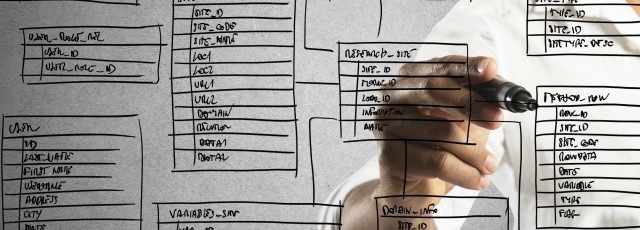Database Administrator (DBA) job description
Database Administrators are professionals who ensure that all databases, including those for financial or customer information, stay up-to-date with policies and procedures in place to protect against data loss. Should something happen on-site at their office, they utilize their skills in computer science to resolve any problems.
This Database Administrator (DBA) job description template is optimized for posting on online job boards or careers pages and is easy to customize for your company.
Database Administrator responsibilities include:
- Building database systems of high availability and quality depending on each end user’s specialized role
- Designing and implementing databases in accordance to end users information needs and views
- Defining users and enabling data distribution to the right user, in appropriate format and in a timely manner

Job brief
A professional Database Administrator (DBA) will keep the database up and running smoothly 24/7. The goal is to provide a seamless flow of information throughout the company, considering both backend data structure and frontend accessibility for end-users.
Responsibilities
- Build database systems of high availability and quality depending on each end user’s specialised role
- Design and implement database in accordance to end users information needs and views
- Define users and enable data distribution to the right user, in appropriate format and in a timely manner
- Use high-speed transaction recovery techniques and backup data
- Minimise database downtime and manage parameters to provide fast query responses
- Provide proactive and reactive data management support and training to users
- Determine, enforce and document database policies, procedures and standards
- Perform tests and evaluations regularly to ensure data security, privacy and integrity
- Monitor database performance, implement changes and apply new patches and versions when required
Requirements and skills
- Proven working experience as a Database Administrator
- Hands-on experience with database standards and end user applications
- Excellent knowledge of data backup, recovery, security, integrity and SQL
- Familiarity with database design, documentation and coding
- Previous experience with DBA case tools (frontend/backend) and third party tools
- Familiarity with programming languages API
- Problem solving skills and ability to think algorithmically
- BS degree in a computer discipline or relevant certification
Frequently asked questions
- What does a Database Administrator do?
- Database Administrators ensure that the databases run efficiently and securely. For example, they create or organize systems to store different data types, such as financial information and customer shipping records. They also make sure authorized users can access this information when needed.
- What are the duties and responsibilities of a Database Administrator?
- Database Administrators are responsible for the management and maintenance of company databases. Their duties include maintaining adherence to a data management policy and ensuring that these essential pieces of equipment are functional.
- What makes a Good Database Administrator?
- A Database Administrator must possess the ability to analyze data and make decisions quickly. They also must have strong analytical skills to monitor performance and identify problems with a system. They need to evaluate complex information from multiple sources, determining actions based on this analysis.
- Who does a Database Administrator work with?
- A Database Administrator often works with the products of a Data Architect's efforts. They take the logical data models created by the Architect and ensure there aren't any issues with the models.
